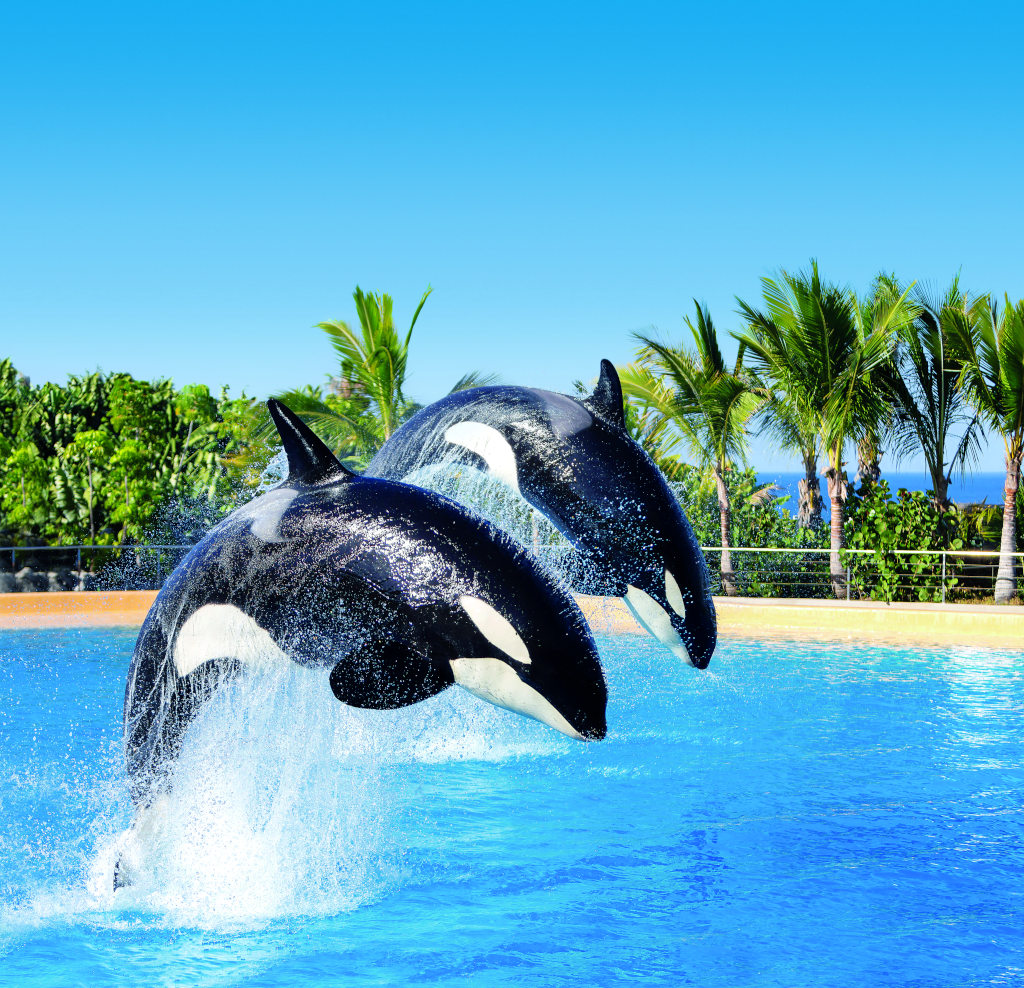Recently the activist Helene O’ Barry form Dolphin Project published an article titled “Complex Animals, Barren Enclosures at Loro Parque,” which raises concerns about the conditions and treatment of orcas at our facility. We want to address her criticisms and provide clarification based on scientific data and our commitment to animal welfare.
The article suggests that Loro Parque confines orcas in barren concrete tanks, which allegedly fail to stimulate their cognitive abilities. This depiction is not only inaccurate but also disregards the extensive measures we take to ensure the well-being of our animals. The enclosures at Loro Parque are designed with the highest standards of animal welfare in mind, incorporating both environmental enrichment and social structures that cater to the complex needs of orcas. This is corroborated by the extensive research and studies we conduct, which are recognized by the broader scientific community.
Regarding the tragic incident involving Keto in 2009, it is crucial to understand that attributing such events to frustration due to living under human care oversimplifies the complexities of animal behavior and disregards the multifaceted nature of such incidents. The safety and well-being of our staff and animals are paramount, and we continuously strive to learn and improve our practices to prevent any recurrence.
The article questions the validity and novelty of our research on orca personalities. While it is well-known that orcas are intelligent and complex, the significance of our study lies in its detailed analysis and the contribution it makes to the existing body of knowledge. This research helps us refine our care practices and enhance the quality of life for the orcas under our care.
The comparison between the environments provided for chimpanzees and orcas at Loro Parque is also addressed in the article. It is important to recognize that different species have different needs, and our facility is designed to meet those specific needs. The chimpanzee enclosure, enriched with natural elements, is tailored to the physical and psychological requirements of primates. Similarly, the orca enclosures are designed to provide adequate space, stimulation, and social interaction that align with the unique needs of cetaceans.
The orcas at Loro Parque are not confined to barren environments as suggested. Our facilities include various forms of environmental enrichment, including complex play objects and varied activities that stimulate the orcas both physically and mentally. Moreover, the social structures within the orca pods are carefully managed to reflect their natural social dynamics, providing them with opportunities for interaction and engagement that are crucial for their well-being.
Loro Parque is accredited by numerous reputable organizations, including the Iberian Association of Zoos and Aquariums (AIZA), the European Aquatic Mammal Association (EAAM), and the Alliance of Marine Mammal Parks and Aquariums (AMMPA). These accreditations reflect our adherence to the highest standards of animal care and welfare. Additionally, our practices are independently assessed by TÜV Rheinland, ensuring compliance with ISO 14000, ISO 9000, EMAS, and Biosphere standards. Notably, Loro Parque was the first European zoological facility to be accredited to the Humane Conservation standard by Global Humane, achieving excellent marks.
The article suggests that our research merely serves to justify keeping orcas in zoos. In reality, our studies at Loro Parque are dedicated to enhancing the welfare of these animals and providing valuable insights to the scientific community. Our research is guided by the Research and Conservation Program 2016-2021, aligned with the Spanish Zoo Law (31/2003) and the European Zoo Directive (1999/22/CE), ensuring compliance with rigorous standards.
Since the arrival of orcas at Loro Parque in 2006, we have undertaken a variety of research projects focusing on bioacoustics, genetics, physiology, ethology, biotracking, and biometrics. These efforts have resulted in 10 scientific papers published in peer-reviewed journals, 24 presentations at international conferences, and the completion of one doctoral, two master’s, and six diploma theses.
One notable project was the development of bioacoustic tools for identifying individual orca vocalizations, which contributed to understanding the evolution of dialects among orcas. Additionally, genetic research involving the Museum of Natural History of Copenhagen led to the sequencing of a high-quality orca genome, enhancing comparative studies of marine mammals.
Our research on orca audiograms, particularly involving Morgan, the hearing-impaired orca, represents the most extensive use of Auditory Evoked Potential (AEP) in this species. This study revealed significant hearing deficits in Morgan, prompting the development of improved AEP methodologies for large cetaceans.
Other significant projects include assessing the immune health of orcas exposed to environmental pollutants, which offers crucial data for modeling contaminant effects on wild populations, and the development of non-invasive tagging systems for large cetaceans, aimed at reducing the welfare impact of traditional tracking methods.
Through our collaborations with 74 universities and research institutes worldwide, Loro Parque contributes to advancing marine mammal care standards globally. Our research outputs are disseminated through peer-reviewed journals, international symposiums, and academic theses, continually informing and improving care practices for marine mammals.
The assertion that the chimpanzees are treated better than the orcas overlooks the species-specific requirements and enrichment practices we implement. While chimpanzees benefit from physical structures resembling their natural habitat, orcas require different forms of enrichment, including social interaction, cognitive challenges, and environmental variability, all of which are provided at Loro Parque.
In light of these points, it is clear that the criticisms presented in the article are based on misconceptions and lack scientific backing. Loro Parque remains dedicated to the highest standards of animal welfare, and we continuously strive to provide enriching environments for all our residents. We welcome any opportunity for open dialogue and collaboration to further enhance our practices and ensure the well-being of the animals in our care.











